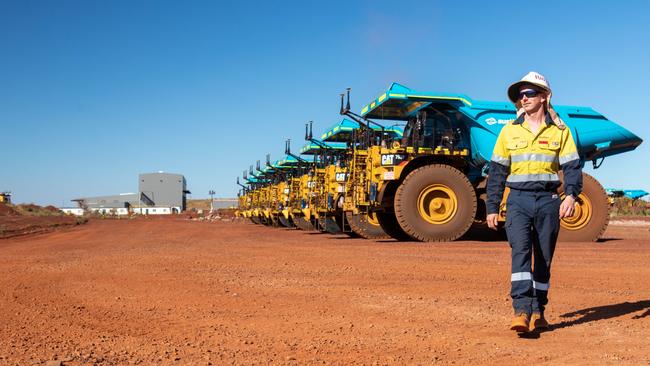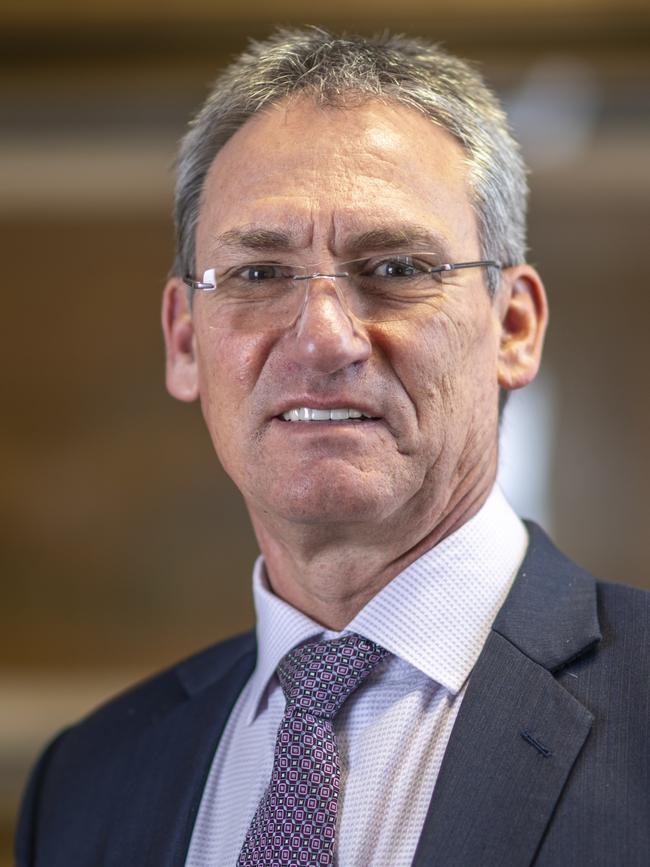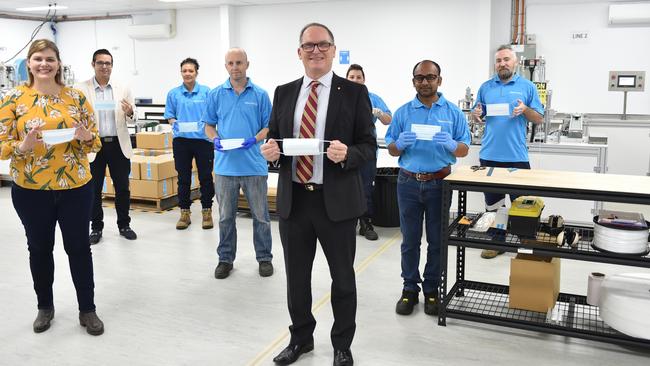Global mining executives believe industry set for health-based class action within 15 years
A survey has revealed a majority of mining executives expect the industry to be rocked by a health-based class action suit within 15 years.

Business
Don't miss out on the headlines from Business. Followed categories will be added to My News.
Mining chiefs in Australia and around the world are bracing for a series of health-related class actions primarily related to the impacts of diesel emissions in underground mines, prompting the industry to scope out ways to electrify their operations.
A global survey of more than 800 mining executives by research firm State of Play shows that more than 70 per cent of the 205 Australasian-based respondents believe the industry will be slugged with a “major” health-related class action within the next 15 years.
Globally, almost 80 per cent of the surveyed executives expected a major health suit is looming on the horizon, with just over half identifying respiratory disease causing airborne particulates as the most pressing wellness issue facing the industry – second only to mental health.
But for some miners, health-related class actions are already a reality. In 2019 six South African gold miners reached an almost $500m settlement with former and current workers who had contracted silicosis and tuberculosis, in what was the country’s first ever class action suit.
Chris Griffith, newly minted CEO of one of the world’s largest gold miners Gold Fields – which was also a respondent in the South African suit – told The Australian he wasn’t surprised mining executives around the world anticipated further class action activity.

“This is a reality in the mining sector and it doesn’t surprise me that many are actually believing this could be something facing them going forward,” he said.
Mr Griffith, who oversees a global portfolio including four major gold mines in Australia, said one major respiratory health issue facing the industry was diesel particulates from underground machinery.
“That is something that does occupy our minds and something that we’ve done over years a lot to address, in particular around things like pursuing cleaner diesel ventilation to remove the negative effects of diesel particulate matter,” he said.
“More recently we have pursuing technology that actually allows you to filter out diesel particulate matter from diesel equipment underground.”
Australian mining health service providers have been alert to the issue for years. Aspen Medical, which services mines including Gina Rinehart’s Roy Hill Pilbara iron ore project, is often contracted to perform pre and post-employment lung capacity checks on underground miners.
However, Aspen Medical founder and executive chairman Glenn Keys said his most proactive clients were electrifying underground equipment and vehicles.

“Those companies that are really at the forefront of this are those that are really saying: ‘The biggest risk is the particulates. How do we get rid of the particulates? Let’s electrify,’” Mr Keys said.
“I can tell you, we would rather not be trying to help someone mitigate the risk around particulate injury, we would much rather them not have that exposure at all by a number of methodologies, but one is electrification.
“It is a very significant risk, and in Australia probably more so because we have so many very deep underground mines … But let me tell you, this is an addressable problem, and it’s addressable today.”
Miners are also examining electrifying parts of their operations over environmental concerns, with 57 per cent of survey respondents in the developed world saying they would be motivated to electrify a mine site for environmental reasons.
On Wednesday Rio Tinto announced it had reached a deal with manufacturing giant Caterpillar to deploy zero-emission autonomous haul trucks at its Gudai-Darri mine in WA as part of its mission to hit net zero emissions across its operations.
Mr Griffith said Gold Fields was trialling electric vehicles underground and above ground at most of its sites, including those in Australia, for both environmental and health reasons.
“We believe we have a solution to remove these particulate matter from diesel equipment underground, then of course as we electrify more of the drive trains and underground vehicles, we will remove those particular threats completely from our operations,” he said.
“This is an evolving technology and in our quest to decarbonise our operations, we will be pursuing more electric vehicles.”
Originally published as Global mining executives believe industry set for health-based class action within 15 years




